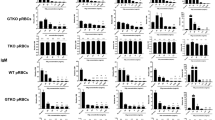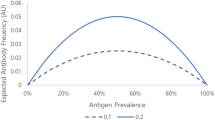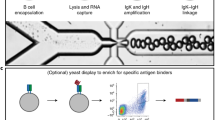Abstract
STUDIES of experimental tissue transplantation have revealed that tolerance to transplantation antigens is more easily achieved across weak histocompatibility barriers than across strong ones1–4. Also, the degree of foreignness between donor and recipient determines the results obtained in clinical transplantations5–7. Taxonomic origin and thus the immunogenicity of red blood cells are important in producing drug-induced immunological unresponsiveness to heterologous erythrocytes in adult mice8,9. In experimental work on tolerance to heterologous serum proteins the degree of dissimilarity between antigens and “self”-constituents has only rarely been considered. A study by Tempelis revealed that in chicks comparatively smaller amounts of an avian than of a mammalian serum protein were needed to induce a state of immunological tolerance. Furthermore, turkey globulin was more effective in producing unresponsiveness than globulin obtained from the goose10. The following hypothesis might thus be put forward: the smaller the phylogenetic disparity between the species from which the antigen is obtained and the experimental animal, the greater will be the tolerogenicity of the antigen in question. I have tested this hypothesis by assessing in adult mice tolerogenic properties of serum albumins obtained from species either closely related to the mouse or from species taxonomically more distant.
This is a preview of subscription content, access via your institution
Access options
Subscribe to this journal
Receive 51 print issues and online access
$199.00 per year
only $3.90 per issue
Buy this article
- Purchase on Springer Link
- Instant access to full article PDF
Prices may be subject to local taxes which are calculated during checkout
Similar content being viewed by others
References
Russell, P. S., and Monaco, A. P., New Eng. J. Med., 271, 502 (1964).
McKhann, C. F., Transplantation, 2, 620 (1964).
Gowland, G., Brit. Med. Bull., 21, 123 (1965).
Berenbaum, M. C., Brit. Med. Bull., 21, 140 (1965).
van Rood, J. J., van Leeuven, A., Bruning, J. W., and Porter, K. A., Advance in Transplantation, 213 (Munksgaard, Copenhagen, 1968).
Payne, R., Perkins, H. A., and Najarian, J. S., Advance in Transplantation, 221 (Munksgaard, Copenhagen, 1968).
Dormont, J., Kreis, H., Leski, M., Bach, J. F., and Reveillaud, R. J., Advance in Transplantation, 247 (Munksgaard, Copenhagen, 1968).
Dietrich, F. M., and Dukor, P., Pathol. Microbiol., 30, 909 (1967).
Dietrich, F. M., and Dukor, P., Clin. Exp. Immunol. (in the press).
Tempelis, C. H., J. Immunol., 94, 705 (1965).
Dietrich, F. M., and Weigle, W. O., J. Immunol., 92, 167 (1964).
Dietrich, F. M., and Weigle, W. O., J. Exp. Med., 117, 621 (1963).
Dietrich, F. M., J. Immunol., 97, 216 (1966).
Rothschild, A., Classification of Living Animals (Longmans, London 1961).
Dietrich, F. M., Immunochemistry (in the press).
Author information
Authors and Affiliations
Rights and permissions
About this article
Cite this article
DIETRICH, F. Immunological Unresponsiveness to Heterologous Serum Albumins in Adult Mice: Effect of Antigen Quality on Tolerogenicity. Nature 219, 525–526 (1968). https://doi.org/10.1038/219525a0
Received:
Revised:
Issue Date:
DOI: https://doi.org/10.1038/219525a0
This article is cited by
-
Genetic control of the immune response
Folia Microbiologica (1972)
Comments
By submitting a comment you agree to abide by our Terms and Community Guidelines. If you find something abusive or that does not comply with our terms or guidelines please flag it as inappropriate.



